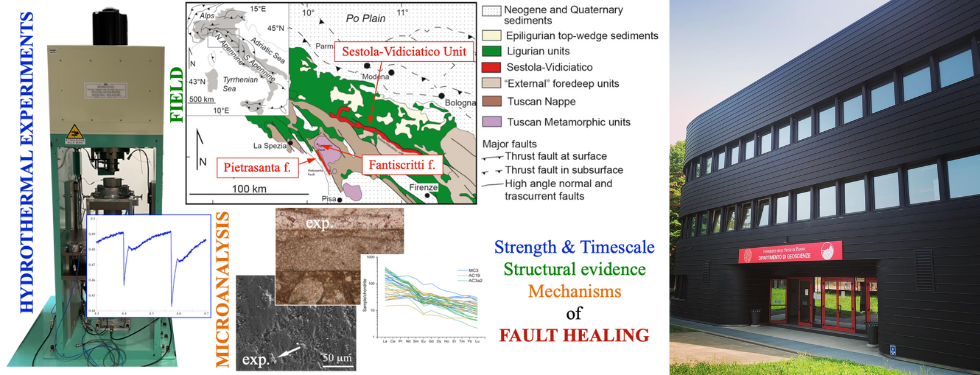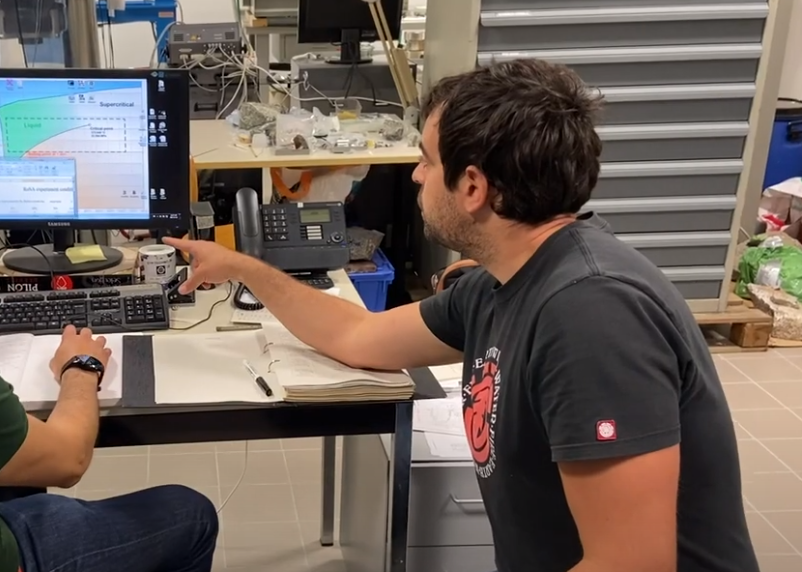FAult STrength recovery at Hydrothermal conditions, an ExperimentAL and field insight


Title: FAult STrength recovery at Hydrothermal conditions, an ExperimentAL and field insight (FASTHEAL)
Principal Investigator: Telemaco Tesei | Programme: PRIN 2022 DM 104/2022

Earthquakes and other unstable fault slip phenomena (e.g. slow slips) are driven by the fast release of elastic strain energy accumulated in the crust by the tectonic forces. During an earthquake, the fault zone rocks are weakened by the processes associated to rupture and slip. The ability of fault rocks to recover strength after an earthquake, known as "fault healing", allows the re-accumulation of elastic energy in the system, therefore enabling the earthquake recurrence. To assess the processes and the rate of fault healing is the key to understand the physics of the seismic cycle. In particular, it is crucial to evaluate how stress accumulation works during the interseismic phase. The most crucial processes of fault healing include mechanical compaction, frictional interlocking, cementation and dissolution-precipitation. In the field, healing is manifested by the occurrence of cohesive (cemented) fault rocks and widespread fault-related mineralizations. How much and how fast natural fault zones heal after major earthquakes is highly uncertain from seismological or geodetic data. Unfortunately, the quantitative knowledge on the kinetics of healing processes and on the rate of mechanical strength recovery is also limited, because of the paucity of dedicated laboratory experiments and by the complexity and inaccessibility of active fault zones. With FASTHEAL we want to promote a fundamental advance in our understanding of fault healing physics by combining novel friction experiments with structural, microstructural and geochemical characterization of exhumed seismogenic fault zones. We will use a unique rock deformation apparatus plus state-of-the art microanalytical facilities to investigate the healing of laboratory fault surfaces and gouges at hydrothermal conditions that enhance cementation and fluid-rock interaction. In particular, we will investigate carbonate-bearing faults that are relevant to understand the behaviour of both the Italian seismogenic faults and shallow subduction seismic zones. In the field, we will investigate how different generations of fault rocks form, are subsequently healed and reworked within faults at seismogenic depth. We will assess the role of multiple cycles of rupture-healing on the development of the fault zone structure by studying fault zones with variable displacement in the same lithologies. Finally, we will use the trace elements signature of fault rocks, veins and hosts to trace local vs. exogenous fluids in the fault zone, which influence the healing processes. These observations, in comparison with mechanical and microstructural data from hydrothermal experiments, will provide new tools to assess the healing of natural fault zones an better understand the seismic cycle.





